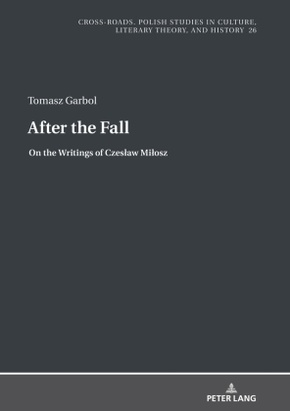After the Fall - On the Writings of Czeslaw Milosz
| Verlag | Peter Lang |
| Auflage | 2020 |
| Seiten | 418 |
| Format | 15,5 x 3,3 x 21,5 cm |
| Gewicht | 605 g |
| Artikeltyp | Englisches Buch |
| Reihe | Crossroads 26 |
| ISBN-10 | 3631816987 |
| EAN | 9783631816981 |
| Bestell-Nr | 63181698A |
The book reconstructs a poetic vision of the world after the Fall and describes Czeslaw Milosz's model of modernism, shaped by his intellectual and existential division between pessimism and ecstasy, yearning for contact with the meaning of reality, and faith in the power of poetic imagination.
Tomasz Garbol's book reconstructs Czeslaw Milosz's poetic vision of the world after the Fall. The entry point to this approach is the conviction about the ambivalence of previous interpretations of Milosz's works, especially about his bipolar poetic worldview (his intellectual and existential division between pessimism and ecstasy) and his understanding of the consequences of the Fall (reversible or fatalistic). The book is a literary studies take on the relationship between literature and religion. The main direction is that Milosz's main need in art comes from his yearning for contact with the meaning of reality, which he seeks in the activity of poetic imagination.
Inhaltsverzeichnis:
Poetic vision of the world after the Fall - heritage of Romanticism (Mickiewicz and Norwid) -
challenges of modernism - yearning for presence or contact with the meaning of reality - faith in the
power of poetic imagination - relationship between literature and religion

